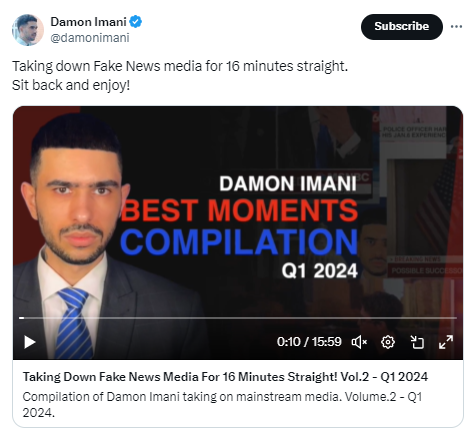Study concluding that DEI is ineffective, and perhaps counterproductive, ignored by "news" media because it runs against the prevailing narrative. This excerpt is from Colin Wright's article: "Why Was This Groundbreaking Study on DEI Silenced? Two leading media organizations abruptly shelved coverage of a groundbreaking study that went against their narrative":
In a stunning series of events, two leading media organizations—The New York Times and Bloomberg—abruptly shelved coverage of a groundbreaking study that raises serious concerns about the psychological impacts of Diversity, Equity, and Inclusion (DEI) pedagogy. The study, conducted by the Network Contagion Research Institute (NCRI) in collaboration with Rutgers University, found that certain DEI practices could induce hostility, increase authoritarian tendencies, and foster agreement with extreme rhetoric. With billions of dollars invested annually in these initiatives, the public has a right to know if such programs—heralded as effective moral solutions to bigotry and hate—might instead be fueling the very problems they claim to solve. The decision to withhold coverage raises serious questions about transparency, editorial independence, and the growing influence of ideological biases in the media.
The NCRI study investigated the psychological effects of DEI pedagogy, specifically training programs that draw heavily from texts like Ibram X. Kendi’s How to Be an Antiracist and Robin DiAngelo’s White Fragility. The findings were unsettling, though perhaps not surprising to longstanding opponents of such programs. Through carefully controlled experiments, the researchers demonstrated that exposure to anti-oppressive (i.e., anti-racist) rhetoric—common in many DEI initiatives—consistently amplified perceptions of bias where none existed. Participants were more likely to see prejudice in neutral scenarios and to support punitive actions against imagined offenders. These effects were not marginal; hostility and punitive tendencies increased by double-digit percentages across multiple measures. Perhaps most troubling, the study revealed a chilling convergence with authoritarian attitudes, suggesting that such training is fostering not empathy, but coercion and control.
The implications of these findings cannot be downplayed. DEI programs have become a fixture in workplaces, schools, and universities across the United States, with a 2023 Pew Research Center report indicating that more than half of U.S. workers have attended some form of DEI training. Institutions collectively spend approximately $8 billion annually on these initiatives, yet the NCRI study underscores how little scrutiny they receive. While proponents of DEI argue that these programs are essential to achieving equity and dismantling systemic oppression, the NCRI’s data suggests that such efforts may actually be deepening divisions and cultivating hostility.
Wrighty's article includes details of the study, showing strongly that exposure to DEI causes people to be more divisive. In short, DIE does the opposite of what it pretends to do. Yet, major news outlets that have often reported on work by the Network Contagion Research Institute (NCRI) refuse to report on this particular study, despite the widespread implementation of DEI and the potential widespread harm caused gy these programs.



